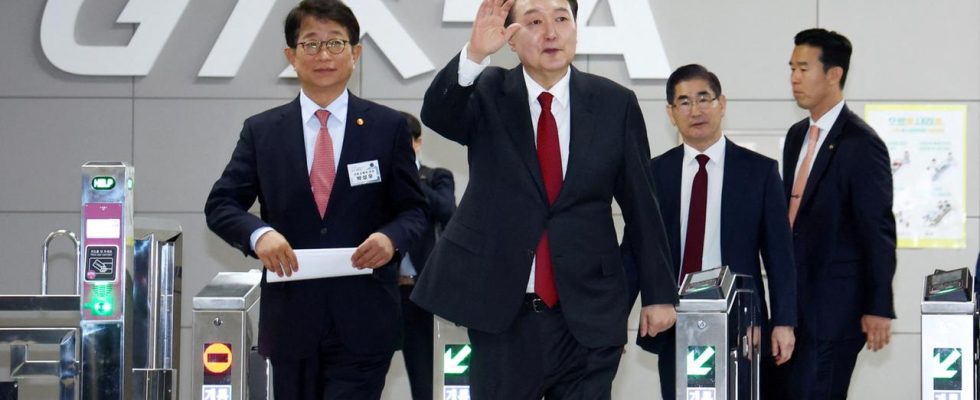South Korea has one of the lowest birth rates in the world. Now the government wants to ensure more children with a new subway. The 180 km/h trains are intended to significantly shorten commutes – and give couples more time for togetherness.
In South Korea, a kind of super subway is expected to increase the birth rate. President Yoon Suk Yeol inaugurated a first section of the 134 trillion won (equivalent to 92 billion euros) project in the capital Seoul. Shorter travel times will allow people to “spend more time with their families in the morning and evening,” said the head of state.
The government hopes that the planned high-speed subway will encourage more young people on the outskirts of the metropolis, which has a population of almost ten million, to have children. South Korea has one of the lowest birth rates in the world. For the Great Train eXpress (GTX), six lines are to be built by 2035, connecting Seoul and several outlying districts.
The GTX would allow young people to consider a home far from the capital without having to commute for hours, Minister Park Sang-woo told Reuters. “With a two-hour commute, how are you supposed to find time for your children on the way home? The idea is to give people more free time after work.” They could use the time they would save for their families.
Long commutes as a reason for Childlessness
Many young couples in South Korea have cited long commutes and cramped, expensive apartments in the Seoul metropolitan area as key reasons for not getting married and starting a family. Half of all South Koreans live in the metropolitan region, which has the lowest birth rate in the country.
The section of the first line inaugurated by the president is intended to shorten the travel time between the Seoul district of Suseo and the satellite city of Dongtan from the current 80 minutes by bus to 19 minutes by the new subway. The GTX is intended to be one of the fastest subway systems in the world, with trains expected to run at top speeds of 180 km/h.

